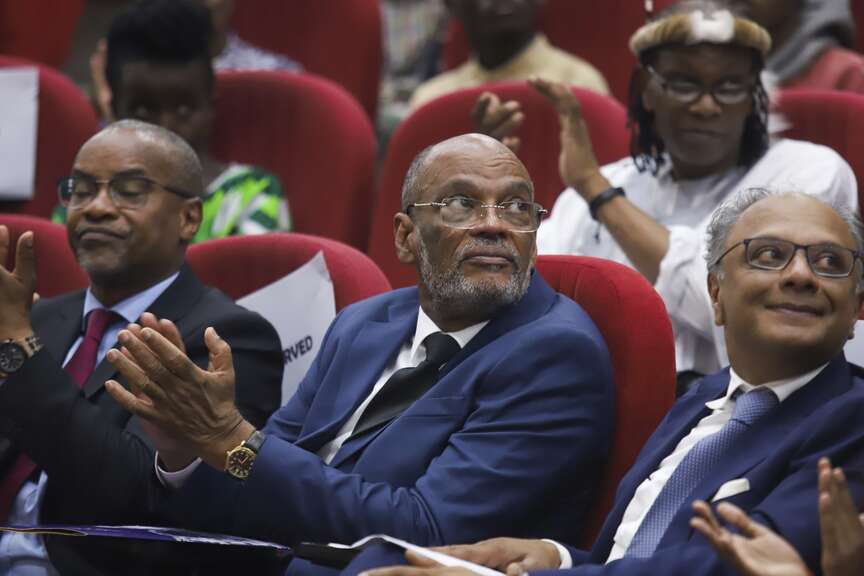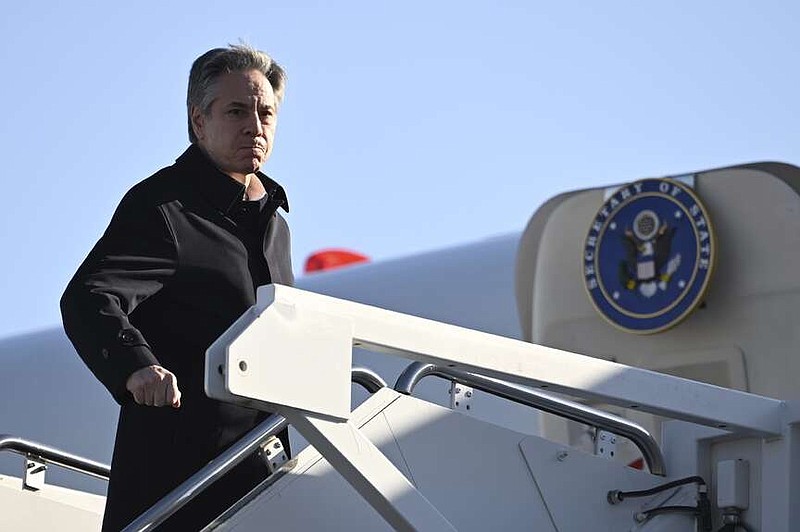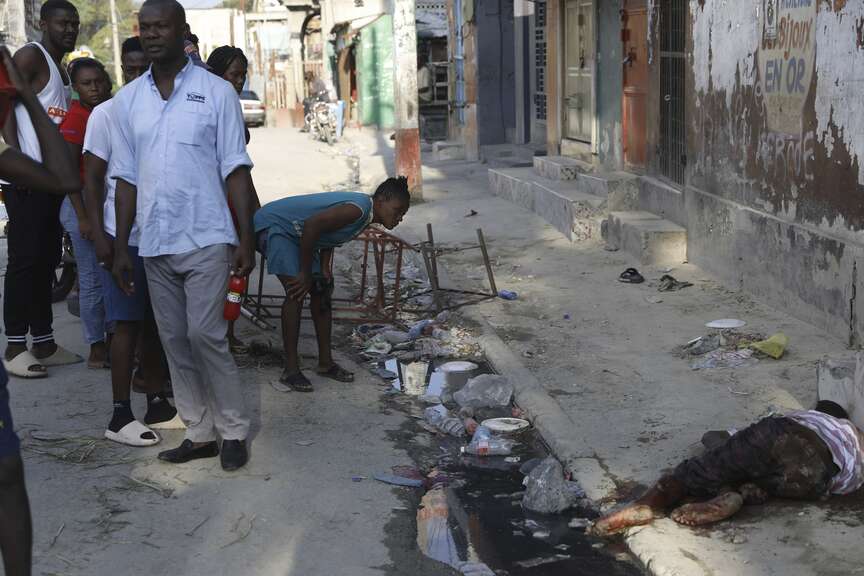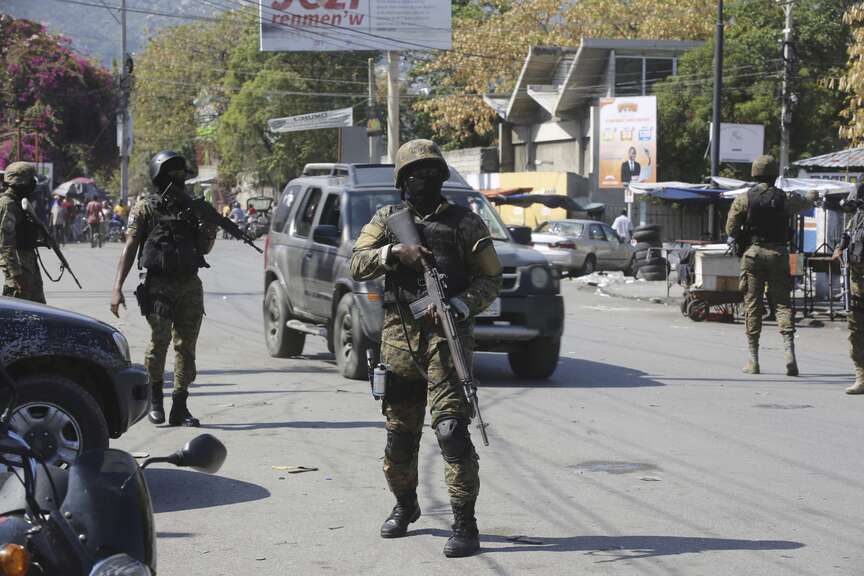U.S. Secretary of State Antony Blinken on Monday announced an additional $100 million to finance the deployment of a multinational force to Haiti after a meeting with Caribbean leaders in Jamaica to halt the country's violent crisis.
Blinken also announced another $33 million in humanitarian aid and the creation of a joint proposal agreed on by Caribbean leaders and "all of the Haitian stakeholders to expedite a political transition" and create a "presidential college."
He said the college would take "concrete steps" that he did not identify to meet the needs of Haitian people and enable the pending deployment of the multinational force to be led by Kenya. Blinken also noted that the U.S. Department of Defense doubled its support for the mission, having previously set aside $100 million.
The joint proposal has the backing of Caricom, a regional trade bloc that held Monday's urgent meeting.
"I think we can all agree: Haiti is on the brink of disaster," said Guyanese President Irfaan Ali. "We must take quick and decisive action."
Ali said he is "very confident that we have found commonality" to support what he described as a Haitian-led and -owned solution.
Meanwhile, Jamaican Prime Minister Andrew Holness said the meeting was a work in progress.
"It is clear that Haiti is now at a tipping point," he said. "We are deeply distressed that it is already too late for too many who have lost far too much at the hands of criminal gangs."
Embattled Prime Minister Ariel Henry, who faces calls to resign or agree to a transitional council, did not attend the meeting. He has been locked out of his own country while traveling abroad because of surging unrest and violence by criminal gangs who have overrun much of Haiti's capital and closed down its main international airports.
Henry remained in Puerto Rico and was taking steps to return to Haiti once feasible, according to a brief statement from the U.S. territory's Department of State.
While leaders met behind closed doors, Jimmy Chérizier, considered Haiti's most powerful gang leader, told reporters that if the international community continues down the current road, "it will plunge Haiti into further chaos."
"We Haitians have to decide who is going to be the head of the country and what model of government we want," said Chérizier, a former elite police officer known as Barbecue who leads a gang federation known as G9 Family and Allies. "We are also going to figure out how to get Haiti out of the misery it's in now."
The meeting in Jamaica was organized by members of Caricom, which for months has pressed for a transitional government in Haiti while protesters in the country have demanded Henry's resignation.
The meeting was held as powerful gangs continued to attack key government targets across Haiti's capital of Port-au-Prince. Since Feb. 29, gunmen have burned police stations, closed the main international airports and raided the country's two biggest prisons, releasing more than 4,000 inmates.
Scores of people have been killed and more than 15,000 are homeless after fleeing neighborhoods raided by gangs. Food and water are dwindling as stands and stores selling to impoverished Haitians run out of goods. The main port in Port-au-Prince remains closed, stranding dozens of containers with critical supplies.
Late Monday, the Haitian government announced that it was extending a nighttime curfew until March 14 in an attempt to prevent further attacks.
Henry landed in Puerto Rico last week after being denied entry into the Dominican Republic, which shares the island of Hispaniola with Haiti.
He has not made any public comment since the attacks began.
Information for this article was contributed by Edith M. Lederer and Evens Sanon of The Associated Press.
 FILE - Haiti's Prime Minister Ariel Henry attends a public lecture at the United States International University in Nairobi, Kenya, March 1, 2024. The prime minister had traveled to Kenya to push for the U.N.-backed deployment of a police force from the East African country to fight gangs in Haiti. Henry, who is facing calls to resign or form a transitional council, remains unable to return home. (AP Photo/Andrew Kasuku, File)
FILE - Haiti's Prime Minister Ariel Henry attends a public lecture at the United States International University in Nairobi, Kenya, March 1, 2024. The prime minister had traveled to Kenya to push for the U.N.-backed deployment of a police force from the East African country to fight gangs in Haiti. Henry, who is facing calls to resign or form a transitional council, remains unable to return home. (AP Photo/Andrew Kasuku, File)


